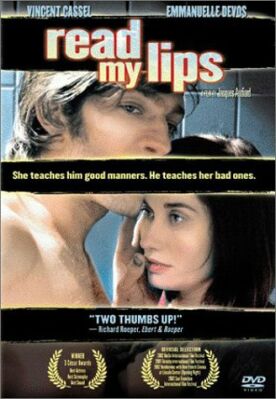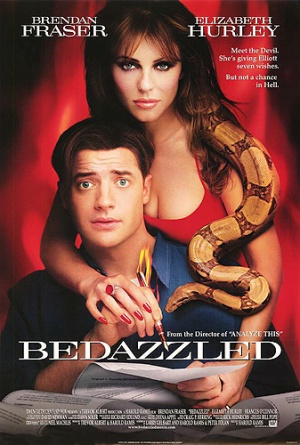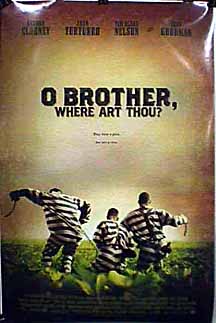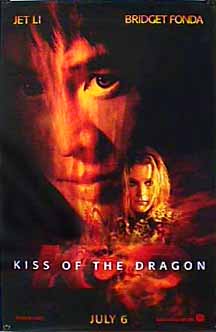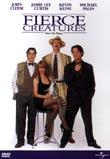Hamlet
Now we know who put the
“Ham”
in
“Hamlet.”
Who else but Kenneth Branagh, whose new, four hour movie of the play is his
latest bid for the title of world’s
greatest actor. And world’s greatest
Shakespearean director and entrepreneur to boot. Readers with long memories will
remember, perhaps, my strictures against Mel
Gibson’s cinematic version of
Hamlet six years ago and my view that the play is almost impossible to do
on the stage, let alone on film, for the reason that T.S. Eliot noticed a long
time ago: that the emotion generated by the language of the play is in
excess of anything justified by the action. There was no
“objective
correlative” for the undeniably
fascinating spectacle of Hamlet’s
emotional and psychic disintegration.
Well, here’s the good news about
Branagh’s Hamlet: he has found
a way to make sense of the play’s
central contradiction. Or, more precisely, to make of it not the central chasm
into which every other production is sucked, as it were into a black hole, but
no more than a mote to trouble the
mind’s eye. This he does by himself
out-Hamleting Hamlet. What has often been recognized as the poor distracted
prince’s essentially theatrical
imagination is made, by Branagh’s own
theatrical sense, into the whole of his character. This is a post-modern Hamlet,
a Hamlet watching himself watching not only the court of Elsinore and the
players from Wittenberg but also Ken
Branagh’s genius as an impresario. Not
only is “To be or not to
be” done posing in front of a
mirror—actually a one-way window behind which Polonius (Richard Briers) and
Claudius (Derek Jacoby) watch him—but a very hip and knowing Hamlet gets to
watch as a
“Who’s
Who” of Hollywood joins the Duke of
Marlborough himself in parading for our delectation through the wonderfully
elegant precincts of Blenheim Palace.
It has been forty years since another showman and impresario, Mike Todd,
based an entire movie, Around the World in 80 Days, on cameo appearances,
and it is Branagh’s admittedly
brilliant idea to try to replicate his feat. Here we have Jack Lemmon as a
hang-dog Marcellus, Gérard Depardieu as a smoothly gallic Reynaldo, Billy
Crystal as smirking first gravedigger and Robin Williams as an hilariouly (OK,
almost amusingly) campy Osric, John Gielgud as a splendidly doddery Priam and
Judi Dench as o’erteemed Hecuba,
Charlton Heston as a Player King whose histrionics take a back seat to
Hamlet’s and so on. Most brilliant of
all is the idea of even including a part for Yorik, the court jester who has
been dead for 23 years. Having established his technique for making some of the
more difficult passages of the text clearer through the use of flashbacks (the
most frequently used is one of himself and the toothsome Ophelia, played by Kate
Winslet, naked in bed and hard at work disposing of her maiden treasure), he
accompanies the gravedigger’s account
of Yorik’s antics with shots of the
British comedian, Ken Dodd, getting up to similar high jinks.
To appreciate the genius of this idea, American audiences have to try to
understand not only the cultural importance to the first television generation
of Britons of
“Doddy”
but also the significance of those large and wildly crooked teeth. For Branagh
has managed to get made for Yorik’s
skull an exact equivalent of the Dodd teeth, producing a shock of humorous
recognition which amounts to one of many instances in the film of what we may
call the Branagh moment. This is the moment at which the director/star jumps out
at you and invites you to admire him—either for his cleverness as a director or
for his grace and beauty as an actor. Or both. Typically, the Branagh moment is
the moment at which the music swells to drown out the distant echo of
Shakespeare’s poetry and the star
strikes a pose that is the very embodiment of heroism for the nineties—that is,
a heroism of images rather than realities.
The bad news (you knew I would be getting to that,
didn’t you?) is that there are lots
and lots of these Branagh moments, and they make the film, as a version of
Shakespeare, unspeakably vulgar. This becomes apparent from the opening scene,
where Jack Lemmon’s valiant but rather
comical attempts to speak the verse as verse are drowned out by the soundtrack
music and the mention of
“hell”
in connection with the ghost produce images of the earth opening up and belching
fire and smoke. It is an advertisement for
Branagh’s continual determination to
give his own images and sounds priority over
Shakespeare’s words.
I don’t really mind that (like most
directors these days, it seems) he jumps the Hamlet saga six or seven centuries
ahead of its origins and about three ahead of
Shakespeare’s more or less
contemporaneous, 16th century setting, in order to make use of the high
flowering of Victorian civilization. Any time the experienced theatre- or
film-goer these days sees a Victorian-style military uniform, he will
automatically think of whited sepulchres and appalling corruption behind the
facade of elegance. What could be more appropriate to a play virtually based on
the notion of something being rotten in the state of Denmark—boringly
predictable though such an approach is by this time?
But Branagh’s vision of this
corruption is incoherent and consists of little more than superficialities.
Polonius wears a corset and consorts with prostitutes while he moralizes about
his son’s behavior, but
he’s a likeable fellow; Rosenkrantz
(Timothy Spall) and Guildenstern (Reece Dinsdale) are pretty much harmless
schoolfriends in over their head, for all their apparent treachery; Laertes
(Michael Maloney) is a decent sort whose judgment is clouded by grief; the Queen
(Julie Christie) is still lovely and sympathetic to every custodial parent who
has tried to mediate hostilities between a second spouse and a child. Even the
character of Claudius is touched by the recent vogue for emphasizing his
strength and competence in office. Where is that stink in Denmark coming from?
It’s not that these are indefensible
readings of the characters; it’s that
such readings are incompatible with what I take to be a merely reflexive
representation of a doomed civilization.
Perhaps this is why Branagh’s
reading is forced to bring in the army of Fortinbras (Rufus Sewall), returning
from Poland at the end not, as in Shakespeare, to tidy up the mess at Elsinore,
but actually to conquer Denmark in a surprise attack. The distraction of having
invading Norwegians outside taking by surprise and slaughtering the Danish
guards while the unsuspecting court watch Hamlet and Laertes having their
climactic duel is disastrous to our sense of the tragic ending. But it does have
the virtue, from Branagh’s point of
view, of providing the occasion for another set of magnificently striking
images—including the wonderfully lavish, Ruritanian uniforms in action for once
and the memorable figure of armed men smashing through the Palladian windows of
Blenheim’s Great Hall.
It is hard to hate Branagh quite as much as he deserves for what he has done
to Shakespeare here. Partly, this is because a part of us (a part of me anyway)
can’t help thinking that Hamlet
deserves such treatment. It is a play about a self-dramatist, so it is
only fitting that it should be done by a self-dramatist. The best moment
in the four hours that it takes (and all credit to him, by the way, for doing
the full text) to plod through this Hamlet is also the most shameless of
all the Branagh moments. This is at the
“How all occasions do inform against
me” soliloquy of Act IV. This,
bizarrely, Branagh makes into the pivotal moment of his production. Having mused
in Hamlet’s typically feckless but
self-aware way on the irony of his own position vis à vis that of
the coarse and brutal Fortinbras, Branagh gives an enormous and unexpected
significance to the lines:
. . .Rightly to be great
Is not to stir without great argument,
But greatly to find quarrel in a straw
When honor’s at the stake.
The music swells, the camera pulls back to show Branagh striking another
pose, arms outstretched against a backdrop of the marching Norwegian armies
crossing the snowy landscape. Suddenly we realize:
Hamlet’s made up his mind!
It’s not just another of his attempts
to cast himself in a hero’s part when
he says “from this time forth/My
thoughts be BLOODY!—or be nothing
worth.” He means it! The problem of
Hamlet is solved, and all the time it was as easy as cutting the Gordian knot.
It’s all nonsense, of course, but I
sort of liked it. Because it showed Branagh, not for the first time, as being
just like Hamlet in his capacity not only, perhaps, for self-deception
and self-dramatisation but also for self discovery. At least for a moment we
believe it, and that is the most that the theatre—or the movies—can ever do
for us.
Discover more from James Bowman
Subscribe to get the latest posts to your email.



